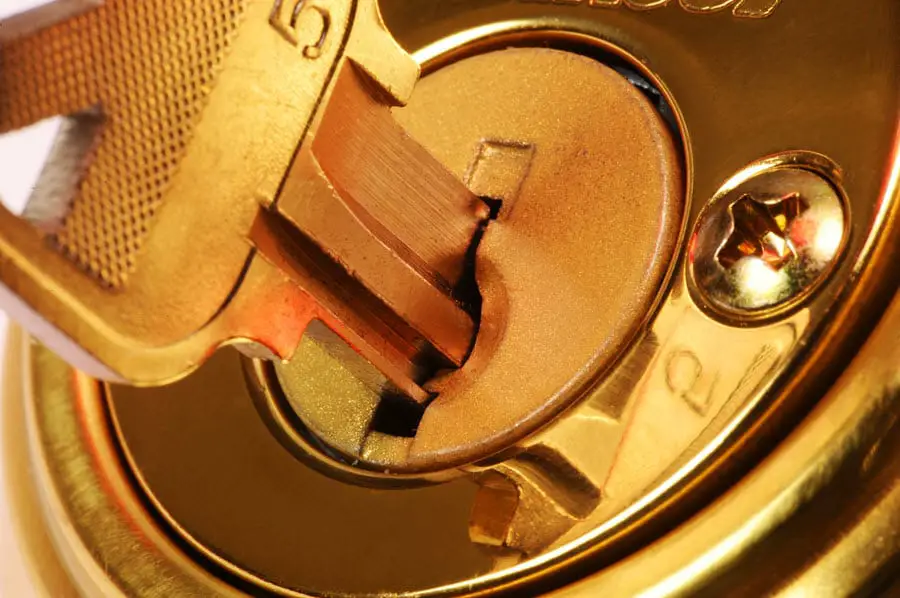Technology is slowly allowing us to replace the use of keys as a means of securing our property, but the vast majority of use still use them to access our homes, vehicles and other property. Sometimes keys are damaged, copies are required and old keys are surplus to requirements. How do you dispose of them in an environmentally friendly way without risking the security of your property?
Contents
Local Tips (HWRC) Facilities
Keys can be recycled securely at your local tip. They can be thrown in the metal recycling bins at Household Waste Recycling Centres. You should not place them into your recycling wheelie bins as they’re considered scrap metal and treated differently to tin cans.

What Keys Are Made From
Most keys are made from brass, or a combination of brass and nickel. Brass in turn is an alloy metal that comprises copper and zinc. Therefore, keys can be said to be made up of copper and zinc (brass) or copper, zinc and nickel (brass and nickel).
Recycling Bins
Keys should generally not go into kerbside metal recycling because of the security implications. You’ll be leaving your bin out for collection and it’s possible that criminals could intercept your old keys.
While the chance of a bad actor getting hold of the key is very low, it may cause your home insurance not to pay out if you’re burgled as a result. Of course, being a victim of crime in itself is distressing enough, but risking leaving yourself without a valid insurance claim too simply isn’t worth the risk.
In addition, the metal recycling collections you use for food cans do not always accept wider household metals so may result in your bin not being emptied, or risk contaminating the metal recycling process.
The Value Of Metal
As keys are made of metal they do have a small value. Scrap metal is the easiest way to assess their value, so individually they are worth very little. However, in volume, it is possible to sell them to scrap metal merchants.
Many areas across the UK are serviced by individuals collecting scrap metal from residents. Be careful when using these to dispose of keys, as there have been criminal gangs involved with scrap metal over the years.
For example, if you are disposing of a damaged key for a lock that is still in use on your home, you wouldn’t want to risk a key falling into the wrong hands, even if it’s damaged. As scrap collections of this nature are made from your address, it would be possible for unscrupulous individuals to easily return with the key to try them in doors, garages and other locks.
Charities
For the same reason that scrap metal has value, some charities may be interested in taking metal to sell for proceeds to fun their cause.
This would be especially likely to appeal to good causes if you have a significant volume of metal to dispose of, but some shops may have collection points to throw small amounts of scrap metal into, including keys.
Identifying A Key
If you have a key and are unsure of the lock it belongs to, check for small ID numbers engraved into the key. Sometimes there will be a matching code on the key and lock to identify that they’re a pair and will match.
It’s not advisable to try a key in different locks at random, as some keys will get stuck depending on the key and lock combination.
Many people have found themselves needing the assistance of a locksmith after getting keys stuck in locks. Of course, it’s not just the key that becomes unusable if the wrong key is used and becomes jammed – the correct key will no longer be usable either until it’s removed!
If no code is available on either the lock or the key (or both) and you have the correct key for the lock available, compare the two keys. By lying them on a flat surface one on top of the other, you should be able to look carefully to see if the shape and detail of the keys are equivalent.
If you are still unable to identify a key and do not have any locks you’re unable to open, consider whether neighbours, relatives or friends have asked you to look after their spare key before disposing of it.
